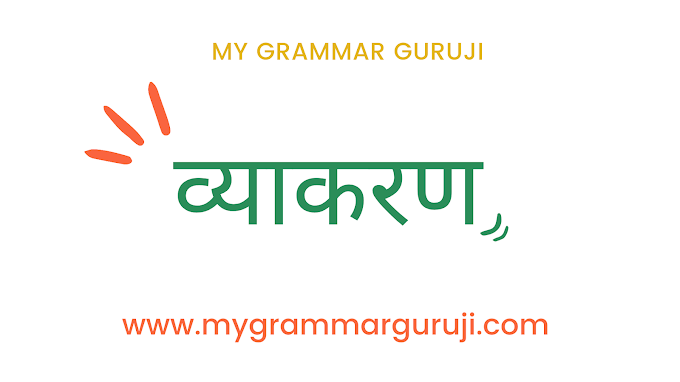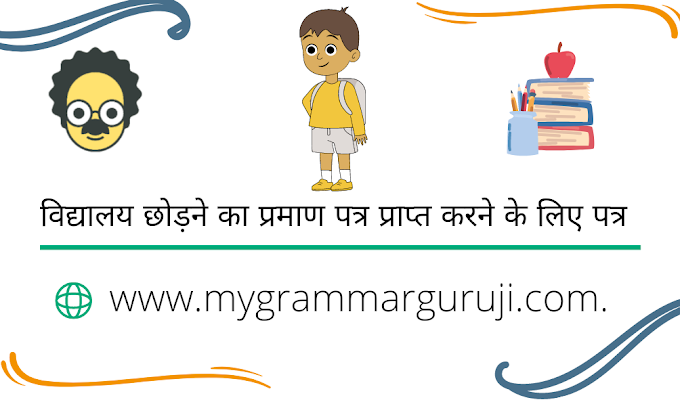A modal is a type of auxiliary (helping) verb that is used to express: ability, possibility, advice, permission or obligation.
Can, could, may, might,should, must, ought to,would, need, need to, will, shall, has to, have to, had to, Dare, will, shall etc.
USE OF CAN.
1. To show power and qualification.
(शक्ति और योग्यता दर्शाने के लिए)
Examples
I can run a mile.
I can lift this easily.
Only she can solve this Question.
2. To express the possibility.
(संभावना व्यक्त (बताने) करने के लिए )
Examples
They can help you.
She can insult you.
Everyone can make a mistake.
3. For anger, infarcity, surprise
(क्रोध, अधैर्यता, आश्चर्य के लिए)
Examples
How can you abuse me.
Where can she go?
What can he do?
4. To order with friendly sense.
(दोस्ताना भाव से आज्ञा देने के लिए)
Examples
She can sit beside me.
You can not go there now.
She can take me there.
5. To stop doing anything.
(किसी चीज पर रोक के लिए)
Examples
You can't smoke in bus.
You can't travel in a ladies compartment.
You can't sit on teacher's chair.
USE OF COULD.
1. To show power and qualification.
(शक्ति और योग्यता दर्शाने के लिए)
Examples
I did all that I could.
He said that he could defeat him.
I could jump over it when I was a child.
2. With regretful sentences in past tense.
(Past tense मे पछताव से भरे वाक्यों के साथ)
Examples
If she asked me I could teach her.
If I started earlier I could catch him.
If I started I could solve it.
3. To tell the possibilities of past which can not be completed now.
(Past की possibilities बताने के लिए जो अब पुरी नहीं हो सकती हैँ)
Examples
He could have written a neat hand.
She could have phoned me.
You could have caught the train. If you had hurried.
4. For formal request in Interrogative Sentence.
(Interrogative sentence मे औपचारिक निवेदन के लिए)
Examples
Could I take to mr. Anil.
Could you help me, please?
Could I have a talk with you?
Could You tell me the time?
5. For necessary or Capacity in Past Tense.
(Past tense मे आवश्यक या क्षमता दर्शाने के लिए)
Examples
Could she run the business by her self?
Could you get another job?
USE OF MAY
1. To order or give permission.
(आज्ञा लेने या देने के लिए)
Examples
May we play here?
You may go now.
May I borrow this book?
He may stay with us on Trip.
2. To express the possibility.
(संभावना व्यक्त (बताने) करने के लिए)
Examples
The news may be true.
It may be rain in the morning.
She may come today.
It may be so.
3. To express possible scenes.
(दृश्यविंम्ब संभावना व्यक्ति करने के लिए)
It's cloudy, it may be rain.
He is blind, he May be fall.
It is raining, the match may be draw.
4. To express a purpose.
(किसी उद्देश्य को व्यक्त करने के लिए)
Examples
We take exercise so that we may have good health.
She works hard so that she may get success.
They practice regularly so that they may win the match.
5. To Wish or prayers.
(इच्छा या प्रार्थना के लिए)
Examples
May You succeeded in life!
May god bless you with a son.
May she get a good partner.
USE OF MIGHT
1. Permission in past.
(अतीत में अनुमति)
Examples
Pinky said that it might rain that day.
She prayed that god might bless him.
They might come inside.
He might use my bicycle.
2. To tell the possibility of future.
(भविष्य की संभावना बताने के लिए)
Examples
The sky is clear, but yet it might rain.
I might be go there today.
He has not promised, but he might attend the party.
They might be visit us next year.
3. Due to the lack of confidence, for the status of humility.
(आत्मविश्वास की कमी से किया गया विनम्रता भरा निवेदन की स्तिथि के लिए)
Examples
Might I take to your father?
Might I borrow your bike?
I wonder if I might take your books.
If you are going toward the post office, Might you post this latter for me?
4. For any purpose in the past.
(भूतकाल मे किसी उद्देश्य के लिए)
Examples
He ran very fast so that he might catch the bus.
The students studied round the clock so that they might get success.
5. For the guess in the relation of the past.
(भूतकाल के सम्बन्ध मे अनुमान के लिए)
Examples
He might have come here at any time.
If you had Left your purse on the table, Somebody might have stolen it.
We might have seen that movie if it was Sunday.
USE OF WOULD
1. In Narration To tell future in Past.
(Narration मे past मे future को बताने के लिए)
Examples
He told me that he would also go there.
Ritu told me that she would complete her work by Evening.
2. With old habits.
(पुरानी आदतों के साथ)
Examples
He would come to me every evening.
In those days, we would go out for a walk in morning.
3. For humble request.
(विनम्र निवेदन के लिए)
Examples
Would you lend me some money.
Would you please give me your shirt.
4. To know the desire of the front person and to reveal your desire.
(सामने वाले इंसान की इच्छा जानने और अपनी इच्छा को भी प्रकट करने के लिए)
Examples
Would you like to dance with me.
Would you like to have a coffee with me.
Would you like to spend some time with me.
5. For impossible status (wish)
असंभव स्तिथि के लिए (काश)
Examples
Would that I were A king.
Would that I were young again.
If I had wings, I would fly to you.
6. To Symmetry, Chances, prediction.
(समरूपता, संभावना, पूर्वांनुमान बताने के लिए)
Examples
Aman would be cooking now.
She would be sleeping at this time.
The teacher would be in the class now.
6. To say about future (predict)
भविष्य की बात कहने के लिए
Examples
I would eat food.
She would go there.
I would play.
He would die that day.
USE OF SHOULD
1. For Duty or Obligations.
(कर्तव्य या दायित्वों के लिए)
Examples
You should obey your parents.
We should serve our motherland.
2. To advice and suggestions.
(सलाह और सुझाव के लिए)
Examples
There should be some more fans in the hall.
You should speak the truth.
3. Lest always use the should.
(Lest के आगे हमेशा should का प्रयोग करते हैँ)
Lest = कही ऐसा ना हो कि
Examples
Walk slowly lest you should fall down.
Don't spend money carelessly lest you should regret ahead.
4. To imagine.
(कल्पित अनुमान लगाने के लिए)
Examples
She should have come at home by now.
Should You feel any problem, ring to me.
5. To show expectations.
(उम्मीदें दर्शाने के लिए)
Examples
Both the teams are very popular so there should be a big crowd at the match this evening.
We have had heavy rain this year, so there should be a good harvest.
She arrives at 06:00pm and it's six, so she should be here any moment.
6. For the description of the future in the past (in Narration)
(भूतकाल मे भविष्यकाल के वर्णन के लिए (Narration मे)
Examples
He said that I should attend her party.
I said that I should not come on that day.
7. To tell unreal event in Main Clause.
(Main clause मे अवास्तविक घटना को बताने के लिए)
Examples
If I were you, I should not allow her.
If I were you, I Should help him.
If I were she, I should not forgive him.
If I were you, I should not do this.
Note : Should have + 3rd form of verb
(करना चाहिए था )
Which was to be done but was not
(जो कार्य किया जाना था लेकिन वह नहीं किया गया)
You should have told me Everything.
She should have gone by Evening.
You should have submitted the bills.
They should have informed the police.
USE OF MUST
1. Necessary or Obligations.
(आवश्यकता या कर्तव्य के लिए)
Examples
It is raining you must take an umbrella.
She must run fast to catch the bus.
You must finish work before going home.
2. Determination or Compulsion.
(दृढ़ निश्चय और दबाब के लिए)
Examples
Our team must win this match to qualify.
All the parents must attend the meeting.
Students must come in proper uniform.
3. Empathic advice.
(ज़ोरदार शिक्षा के लिए)
Examples
He must respect his seniors.
You must obey the laws of the land.
She must apologize for her mistake.
You must not loose your temper while you are arguing a point.
4. Prohibition (प्रतिबंधित होना)
Examples
Visitors must not feed the animals.
She must not run after a running bus.
You must not bunk the classes.
5. Certainly of belief or strong probability.
(निश्चित रूप से विश्वास या मजबूत संभावना)
Examples
They must be joking.
She must be twenty now.
You must have taken a wrong turn.
She must be hungry now.
He must be a teacher.
USE OF OUGHT TO
1. To Moral Duty, Obligation, and social Binding.
( नैतिक कर्तव्य, दायित्व, और सामाजिक बाध्यकारी के लिए )
Examples
We ought to respect our parents.
You ought to help the needy.
We ought to serve our nation.
You ought to consult a physician.
2. To show Desirability.
(इच्छा प्रकट करने के लिए/ बिना दबाब के अपनी तरफ से कुछ काम करने के लिए)
Examples
She ought to buy new clothes now.
We ought to know about it.
We ought to help her.
3. In Perfect Tense, to tell the status that could not be done but could not.
(Perfect tense मे उस स्तिथि को बताने के लिए जो होनी चाइए थी लेकिन हो नहीं सकी )
Examples
We ought to have come here in time.
We ought to have taken him in hospital.
You ought to have invited her in function.
USE OF USED TO
1. To refer to any habit of past.
(भूतकाल की किसी आदत को संदर्भित करने के लिए)
Examples
You used to it.
(तुम्हे इसकी आदत थीं)
Hemant used to smoke one packet of cigarettes daily.
USE OF HAS TO/ HAVE TO/ HAD TO
1.Has to / have to do it in a lot of work against the desire in present.
(Has to /have to वर्तमान मे जब किसी कार्य को इच्छा के विरुद्ध मज़बूरी मे करना पड़े)
Examples
I have to do this all.
We have to sleep on the floor.
She has to get up early in the morning.
2. Had to in the past when there is a problem against desire.
(Had to भूतकाल मे जब किसी कार्य को इच्छा के विरुद्ध मज़बूरी मे करना पड़े)
Examples
I had to do all my home work.
We had to speak a lot.
She had to sit on the last bunch.
USE OF NEED
1. Necessity
(आवश्यकता या जरुरत के लिए )
Examples
You need some rest.
Need I go there?
Now, need not to go there.
He need not worry anymore.
You need not have hurried.
Note : Need not के स्थान पर "haven't got to" या "don't need to" का प्रयोग भी किया जा सकता हैँ
He need not go there.
He has not got to go there.
He does not have to go there.
USE OF DARE
1. In the meaning of courage.
(साहस या हिम्मत करने के अर्थ मे)
Examples
How dare you abuse?
Touch me if dare.
She dare not call you a fool.
How dare he do such a thing.
Note : How Dare is used for anger, shock or surprises.
(How के साथ Dare का प्रयोग गुस्सा, सदमा या आश्चय के लिए किया जाता हैँ)
2. Dare or Dare to can be used with somebody, anybody, nobody.
(Somebody, anybody, nobody के साथ dare या dare to दोनों प्रयोग मे लाए जा सकते हैँ)
USE OF WILL /SHALL
1. Same as future tense.
Shall : - I, we
Will : - He, she, it, name, you, they etc.







No comments:
Post a Comment
Thank you! Your comment will prove very useful for us because we shall get to know what you have learned and what you want to learn?